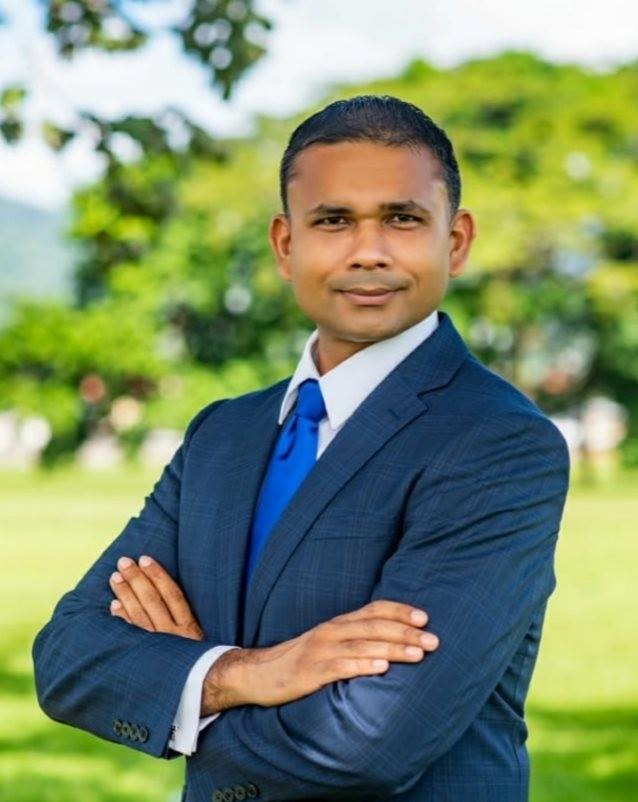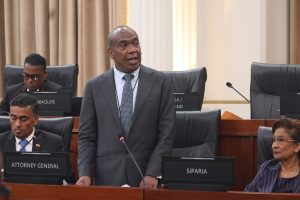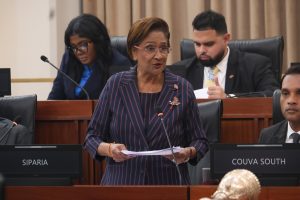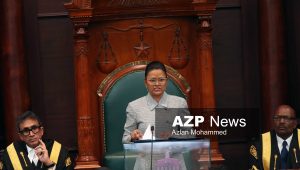AZP News Commentary
By Vyash Nandlal
IN this election season, political parties are on the hustings, making their arguments to the population, to vote them in, to manage our affairs.
One of the biggest issues for voters this election, is the economy, so it was very interesting when the UNC held an entire townhall meeting last week, dedicated to economic issues.
Out of all that was said in that meeting, one particular piece of information and statistic resonated. Former minister of energy Mr Kevin Ramnarine stated, “IMF data indicate that Trinidad and Tobago was the seventh worst performing economy in the world for the period 2016 to 2024.”
Over the next few days, I saw this information continue to reverberate through social media and was even highlighted right here at AZP News in an article entitled, “T&T is 7th Worse Performing Economy in the World – IMF”, published on March 30th, 2025.
While this may give a particular impression to the public that the IMF has ranked Trinidad and Tobago as the 7th worst in the world, this ranking never happened. The IMF has published no report ranking countries based on, “worst performance” and there is absolutely no official statement from the IMF claiming Trinidad and Tobago to be the 7th worst performing. If this is not the case, then where did this claim come from?
Paid political ad
According to Mr Ramnarine, who boldly proclaimed this information on a public political platform, “I obtained this information from a colleague at the university, whose name I won’t disclose to protect his identity”. So according to Mr Ramnarine, an unnamed researcher with no published paper, no context and no methodology provided, appears to have cherry-picked statistics and is utilising it for politics and viral clicks, in this election season. Is this what we are supposed to accept as discerning voters?
What are the facts? Yes, Trinidad and Tobago went through a difficult period. From 2015 to 2020, energy prices collapsed and remained low. According to the US Energy Information Administration (EIA) data on WTI oil prices, after averaging above $90 per barrel from 2011 to 2014, drastically fell to below $50 a barrel in 2015 and 2016 and remained suppressed for years, with gas prices following a similar trajectory. Then in 2020 we faced the Covid-19 pandemic and another energy price collapse, with prices even going negative. Like all hydrocarbon producers we struggled during this period and that is a fact.
But what does this research and headline fail to inform the public? Since 2022, this economy has been steadily growing, according to the IMF. In fact, 2024 marked a third consecutive year of economic growth for Trinidad and Tobago, with IMF data showing growth of 1.48% in 2022, 1.14% in 2023 and 1.6% in 2024. These growth rates outpaced almost 50 countries, including Norway, France, Japan, Denmark, Belgium, Canada and the UK. Further the IMF is projecting growth for 2025, 2026, 2027 2028 and beyond.
So yes, we went through difficult times, but this country was able to endure, adapt, recover and we are growing better than the headlines would have the population believe. Mr Ramnarine’s unnamed researcher, apart from failing to take into account this useful piece of information to add context, also failed to visit the IMF Article 4 Consultation report of June 5th 2024 which stated, “Trinidad and Tobago is undergoing a gradual and sustained economic recovery.” The report went on cite “strong performance” in the non-energy sector and a sharp decline in inflation.
However, this convenient piece of research neglected to inform its users that economic growth alone, is not a good indicator of development. There are global measures which take into account the, overall well being of the population. The UNDP Human Development Index (HDI) does just that, ranking countries based on levels of Human Development and incorporating measures of income, equality, health, educational attainment and other relevant variables. According to the latest published HDI data, as at 2022, Trinidad and Tobago was ranked 60 out 193 countries placing it in the “High Human Development” category, ranking above our regional and Latin American neighbours.
I took the time to present this addition to Mr Ramnarine’s anonymous researcher’s work, but given the calculated political impact, I believe my research and context will be inconvenient for the intended use. Given the situation, in this election season I would like to warn the public to be careful of those who seek to play smart with statistics but won’t sign their name to their own analysis. Because as the saying goes, there are lies, damn lies and now there’s viral statistics, by unnamed researchers.
Vyash Nandlal is an economic researcher and advisor in the Office of the Prime Minister with more than 15 years’ experience in the field of economic and financial research and analysis. He holds professional qualifications in Economics and Finance and serves on the boards of several private, state and non-profit organisations
![]()













